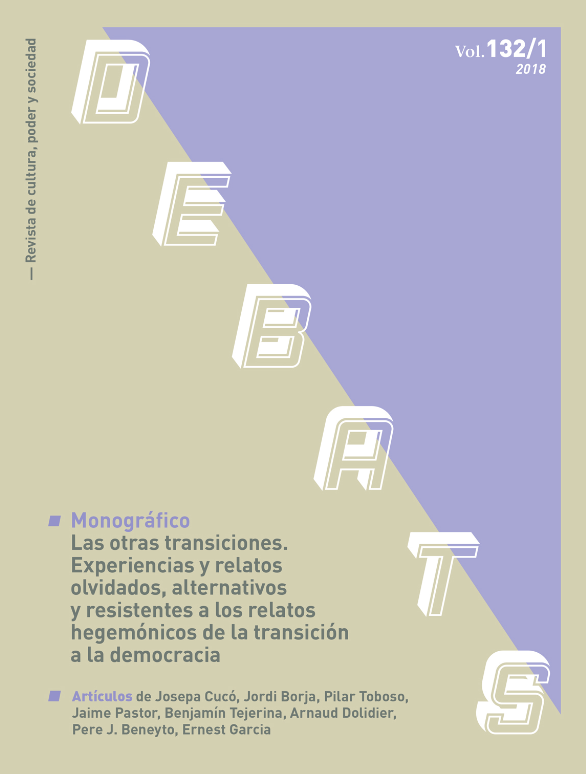Transitions, dreams, frustrations, and hopes
Abstract
Francoism was a brutal dictatorship, but it was not always that way. During the 1940s and 1950s, people in Spain lived under a dictatorship like that of other fascist dictatorships, in a civil war atmosphere of repression and terror. Society
lived in fear and/or submission; resistant minorities were heroic, but they did not change the political regime. In the 1970s, some segments of society gradually began to lose their fear; the Spanish state no longer controlled social or daily life
regarding the use of language; the fight of the trade unions grew despite State repression; universities and cultural spheres despised Francoism and, by the end of the decade, social demands and protests emerged in working-class eighbourhoods.
In this context, the political cores—most of the left as well as nationalists—began to take root in the most critical areas of the regime and an ‘agreed transition’ became almost inevitable. Most of society did not want the Franco regime to continue,
but they also feared a traumatic and violent change. The result was a formal democratic beginning. However, institutional Francoism was still present, for example, in the armed forces, the upper echelons of bureaucracy, and the Judiciary. Transition was the beginning of democratisation.
Downloads
Downloads
Published
How to Cite
Issue
Section
License
Without prejudice to the provisions of article 52 of Spanish Law 22/1987 of November 11 on Intellectual Property, BOE (official state bulletin) of November 17, 1987, and pursuant to said legislation, the author(s) surrender(s) free of charge its rights of edition, publication, distribution and sale of the article, for its publication in Debats. Journal on Culture, Power and Society.
Debats. Journal on Culture, Power and Society is published under the Creative Commons license system in accordance with the «Recognition - Non-Commercial (by-nc) modality: The generation of derivative works is permitted provided that commercial use is not made. Nor can the original work be used for commercial purposes».
Thus, when the author submits his/her contribution, he/she explicitly accepts this assignment of publishing and publishing rights. Authors also authorize Debats. Journal on Culture, Power and Society to include their work in an issue of the journal to be distributed and sold.











